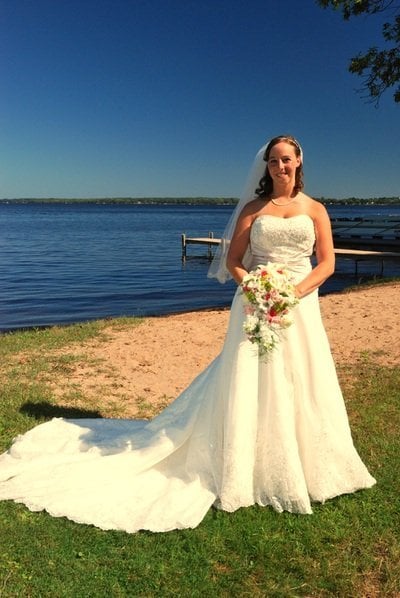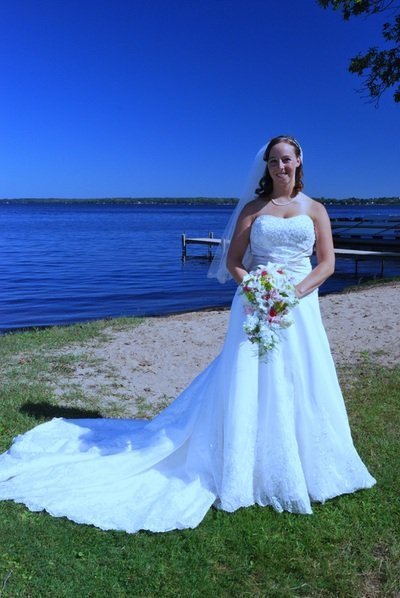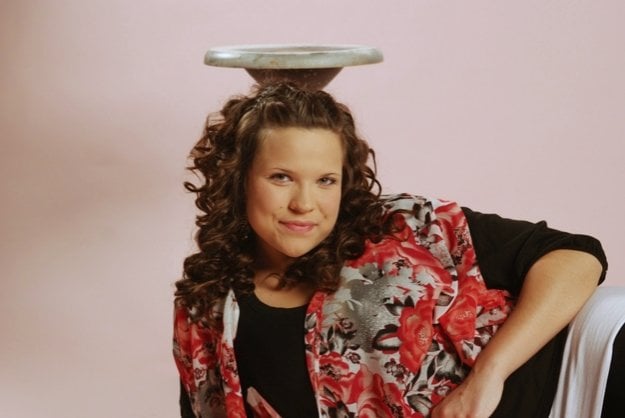Step 1: Evaluate
So, the first thing to do is make a budget for your everyday life. If you haven’t done this already this is a good time to start. We recommend using a spreadsheet program such as “Excel” or “Numbers” (If you have an iDevice that’s less than a couple years old you probably have “Numbers” for free.). Use the spreadsheet to write down what your average monthly income is, then subtract what you pay out for bills each month (figure averages for utilities as best as you can). Be thorough! Even if it’s something you pay annually for, like magazine subscriptions or Xbox Live, break down the monthly cost and stick it in the expenses side. For necessities such as gas and food try to give yourself a reasonable allotment for these things. Once you’ve factored in your necessary expenses, then you should have your surplus. This is what you can potentially put into savings for your wedding.
Now is also the time to throw a number out there for the amount of guests you want to have. Just pick a nice round number as this is what you’re going to shoot for on your savings goal. The average wedding guest costs $130-$160.
Let’s create an example: If you want to have 200 guests at your wedding you should save $26,000. If you figured that you should be able to realistically save $800/month it would take you 2 years and 8.5 months to save that amount.
Of course if your parents are helping you then that’s less time you need to save. Let’s say that from your parents you receive $10,000 to help with your wedding. That leaves $16,000 to save which would only take 1 year 8 months.
Naturally this also puts into perspective how many guests may be appropriate for your budget too. The average wedding in Brown County is in the middle of the $20k-$30k range. However, the majority of weddings are $10,000 or less. If your budget is $10,000 then a realistic number of guests is 75 from the figures given. Also, please note that these numbers came from www.costofwedding.com. We didn’t make them up.
Of course, there are those out there who are reading this that will say, “I had 200 people at my wedding and only spent $7,000.” Of course, that begs the question of what did they skip or do themselves to accomplish that. We won’t say you can’t have an enjoyable wedding that way, but we will say that in our experience in attending weddings the ones where the guest list was smaller with better quality all around seemed to be less stressful on everyone.
Venue (includes catering [food & drink] and cake): 35%
DJ (to possibly include ceremony and additional services such as lighting design and photo booth): 15%
Photographer: 9%
Florist & decorations 8%
Officiant 5%
The other 28% can be divided between things like, favors, bridal gown, accessories/pampering, wedding rings, transportation, invitations, etc.
Step 2: Set your date and your venue(s)
Now that we have an idea of what to allocate for each of our major vendors we can start to do our shopping. Of course the first two things needed are a reception site and a ceremony site. Usually the ceremony site is easy for couples to determine (especially the bride). They always knew they’d get married in a church, on a lakefront, at a relative’s house, etc. Just take one thing into consideration: if you are having a good amount of out-of-town guests attending your wedding it may be prudent to have your ceremony and reception all at the same site. At the very least try to have your reception at a location that is close to hotels where you can block off rooms. Another thing to consider: if you are having your wedding during football season be prepared for hotel room prices to be higher or for rooms to not even be available.
Also, if you are going to have your reception and ceremony at two different places, try to pick places that are close together. Ideally it should take no more than 10-15 minutes to travel between the wedding site and the reception site. For your out-of-town guests have a place for them to kill time between the ceremony and reception if this lag time spans for more than an hour. Perhaps a relative’s house is a possibility.
If you are thinking of having an outdoor ceremony ALWAYS have a backup plan in case of inclement weather. If you have a harpist, violinist, or guitarist the elements can affect their instruments negatively, and they may not be able to play. If you have a DJ, and it starts raining, they may unplug their system to protect their equipment. So, be prepared with a secondary indoor option in case the great outdoors doesn’t work out.
Here’s a couple tips to help for those on tighter budgets:
If a venue has their own kitchen (no need for an outside caterer) then it’s usually far less expensive. This alone can help free up a significant portion of your budget.
Having your ceremony and reception at the same location can help you save as well.
Step 3: Book the rest of your professionals
No matter which vendor you call never ask “how much” right out of the gate. Give a description of your wedding, and your needs. Let the vendor ask questions to help narrow things down. If the vendor asks to talk on the phone it’s because they most likely want to save you time by asking their questions verbally instead of texting or IMing through Facebook. Set a phone appointment time. Phone calls are still the quickest way to exchange information. Also, a phone call, or face to face meeting, gives you much more information about a vendors personality so you can decide if this is a person you want to work with.
From this point start with your DJ. I know, it sounds biased that we list this first, but entertainment is the single most important thing remembered for guests and brides when they look back on their wedding day. Don’t take our word for it, ask the good people at St. Louis Bride & Groom Magazine about the huge survey they did. (We’ve posted these statistics on our website to make them easy to find.)
So you have 15% of your budget to work with. Now, for those of you with a $26,000 budget you’re probably thinking, “Woah, $3,900 for a DJ?” Well, we would hope that your DJ should be worth way more than the cake and the chair covers so long as they deliver on their value. It’s actually a reasonable amount to have set aside, especially if you’re considering someone who’s very skilled, while wanting other entertainment options such as lighting design or a Photo Booth. All we’re saying is have it set aside so you’re prepared. Whatever you don’t use you can put toward another part of your budget. If you’ve budgeted properly, it just makes it easier and less stressful.
Always meet with your DJ prior to booking when possible. If you happen to live a few hours away then do the best you can by phone or using some type of video meeting service like Zoom or FaceTime. Good DJs will be willing to meet with you as often as needed, and you should be able to get a hold of them during the day.
Be skeptical of DJs that charge very little (starting under $1,300). If the price is too good to be true then it is. Don’t fall for it. We get too many calls from couples every season who get scammed by the low-ball DJ that cancels last minute, and now the couple is frantically trying to find a replacement. In nearly all cases the DJ that bailed also kept the deposit too. What’s worse, is the couple didn’t properly prepare room in their budget for a professional, and either end up with no one, or something less than desirable. Don’t join that club.
The photographer is important, and, just like DJs, there are very few great photographers, and there are lots of amateurs looking to make a quick buck.
Here’s a couple big tips to help you spot a good, or a bad, photographer:
Color/white balance – all photographers are shooting digital now. If they’re using film chances are they are either a purist who is very expensive, or someone new to wedding photography that can’t afford a decent digital camera.
Look at the three images below:
If the photographer has pictures where the subjects are out of focus, or looks like objects in the background are growing out of people’s heads, then that’s an instant sign that you’re dealing with an amateur (see image below).
Find the absolute best vendors you can for your budget allocations. If you were able to reduce your venue costs you may be able to use that here to get your ideal vendors if they cost a little more.
Decorations are definitely a place to consider going the DIY (Do It Yourself) route if you absolutely need to save. There are many Facebook groups where recent brides will sell their recently used decorations at great prices. Not only that, but chances are these decorations have only been used for one day and are likely to be in “like new” condition.
Don’t stress too much about decorations. No guest has ever said, “Those decorations really made the night memorable.” At best someone will say, “These center pieces were a nice touch/looked very pretty.”
Brides, if you’re going to do a “trash the dress” event after the wedding make sure you get a great looking dress for less money. If you’re going to preserve the dress to possibly hand it down then factor in preservation costs to your overall dress cost.
Grooms – you have it easy. If you get so many groomsmen in your wedding party to rent their tuxedos often times your tux rental is free. So, work on that circle of friends!
Step 4: The details
Now come the details – which will be the part where you may feel the most lost. By hiring quality professionals they will help make this so much easier!
If there is one thing I can say to sum up this entire section it is this:
Be decisive, and know what you want. If you don’t know what you want take the time to get as much figured out as early as possible. Talk to the professionals you have hired for suggestions if you’re stuck, or talk to them first to prevent getting stuck in the first place!
I can’t begin to tell you how helpful it is for yourself, and your professionals, to know what you want early on.
A couple examples:
Think you might want to select a few different songs on your “must play” list for your DJ? That’s ok since the popular songs change month to month. Start filling out that list 6-8 months before your wedding, and you’ll have an easier time switching out a couple songs vs. having to come up with the entire list one month out before your wedding.
Not sure which flavor of cake you want? At least narrow it down to a few selections instead of the entire range that your baker offers.
What people do you want in your formal photos (typically taken between the ceremony and reception)? Let your photographer know as well as the people involved. Your photographer likely has a shot list to help with this too.
The fewer decisions you need to make about your professionals when it gets close to the time of your wedding, the better. There will be plenty of other things to worry about such as people who don’t RSVP, making sure the bridesmaids and groomsmen get their fittings finalized for their garments, etc. In fact we could dedicate a full essay about the challenges you may face with “people wrangling”.
Proper professionals will get in touch with you at regular intervals to make sure things are going well.
Ideally speaking, by the time you send out your invitations you should have 99% of your plans with your professionals set. The other 1% are the changes that will inevitably happen close to the wedding day.
One month prior to your wedding you should also have a very good idea of how many guests are attending.
Ok, we’ve stressed this (no pun intended) enough. Ok, maybe pun intended. At this point, it’s definitely pun intended.
Step 5: Have fun, then get ready…
Keep enjoying this time, up until about 2 weeks before your wedding. Then be ready for a few last minute changes. Sometimes they’re big, and sometimes they’re small. Either way, roll with it, and know that if you hired the right professionals they will be able to help you compensate.
The week of your wedding everything should be ready to go. Now you just enjoy the bachelor/bachelorette parties, the rehearsal dinner, and, of course, your big day!






Comments are closed for this article!